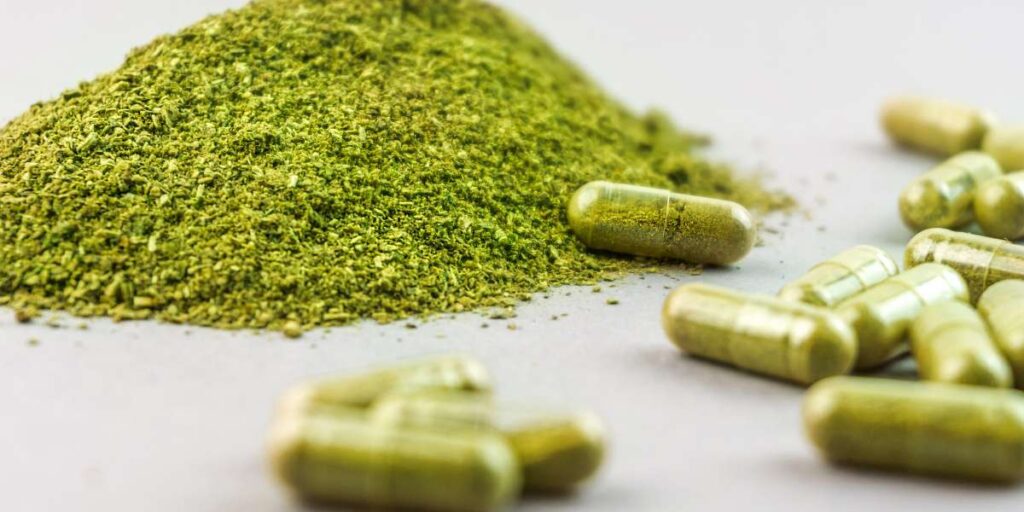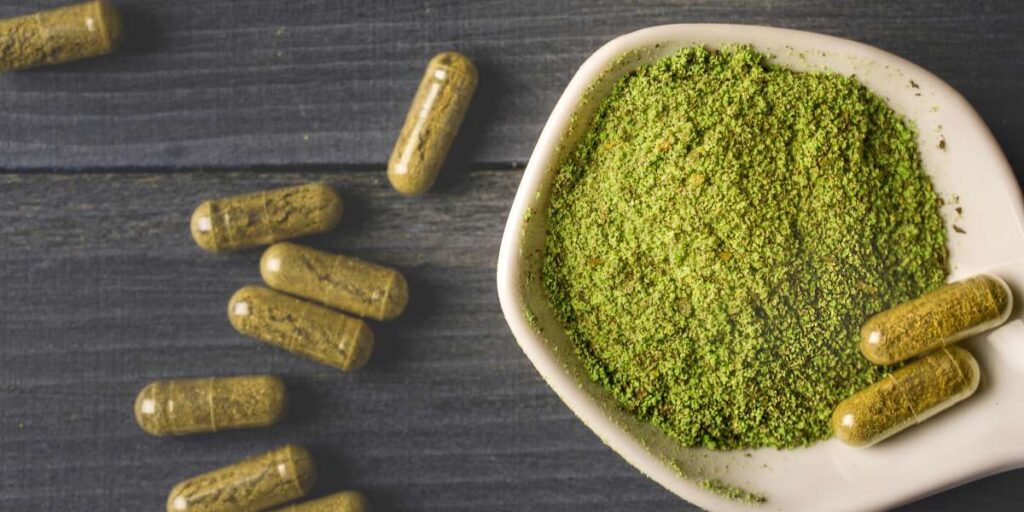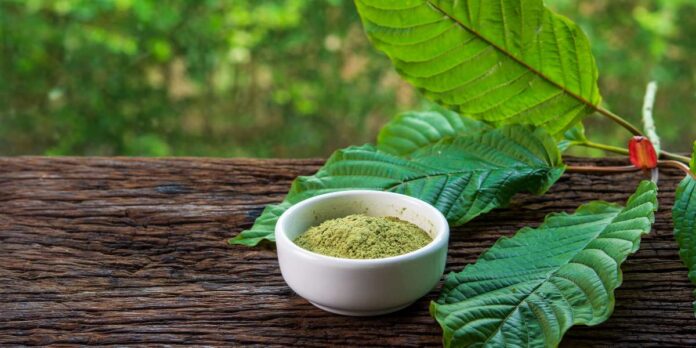Does Kratom Show Up On Drug Tests? Well, that depends on the kind of drug test. Kratom may not be detectable on standard 5-panel drug tests, but blood and urine analyses do detect its presence. Additionally, there is also an official 10-panel Kratom Drug Test administered by clinicians which does show up as well. Meaning yes kratom will show up occasionally, just not as frequently as other, more dangerous substances do.
It’s also essential to keep in mind that kratom is legal both federally and in most states. Therefore, authorities and employers are less likely to test for it if it isn’t illegal in your state. Advanced testing methods used by employers for high-level positions might not detect kratom or its metabolites due to it not being a widely known drug of abuse. Below we’ll take a closer look at what kratom actually consists of.
What Is Kratom?

Kratom is an Asian tree closely related to those that produce coffee. People living in its area traditionally used the leaves for their stimulating effects or made into tea for increased energy and productivity levels. While others used its leaves medically for pain relief or other purposes.
Today, kratom has become increasingly popular across the U.S. and can be purchased online in different forms such as capsules. While research on its effects remains scarce, anecdotal reports claim it can aid those recovering from opioid abuse to manage cravings and withdrawal symptoms as part of recovery from these drugs.
At lower doses, Kratom exhibits stimulant-like properties; at higher dosages, it mimics the actions of opiates such as their sedating and pain-relieving effects. At these higher dosages, however, side effects such as sweating, overheating, frequent urination, reduced appetite, diarrhea, nausea weight loss may occur as well as potential skin irritations such as sweating.
Although kratom isn’t on the Drug Enforcement Administration’s (DEA) official list of substances of concern, reports surfaced suggesting the agency wanted to regulate it – only for this plan to meet with extreme public disapproval and ultimately be revised or abandoned altogether.
Numerous case studies suggest that prolonged use of kratom can result in some degree of physical dependence. When its usage ceases, unpleasant withdrawal effects and drug cravings could occur if discontinuing its usage suddenly.
How Long Will Kratom Last in Your Body?
The effects of mitragynine vary based on dose, with higher amounts producing effects that last several hours. Though due to not being approved as a prescription drug or by the FDA there are no specific guidelines regarding its usage.
According to estimates, most users may experience half-lives for kratom of approximately 24 hours. A half-life is defined as the time required by one’s system to eliminate half of an amount.
Under normal conditions, clearing drugs completely from your body will typically take 5-6 half-lives. However, individual results may differ. With regards to kratom specifically, this window would typically fall between 5-6 days to ensure its complete removal from your system.
Testing For Kratom

As previously noted, few tests are likely to identify kratom. However, its metabolites could potentially be detected using 10-panel drug screens or urine collection kits. If detected during such an analysis, urine testing can detect this substance up to seven days post-consumption. Such findings are unlikely to cause issues since the substance is legal in most areas. Finding alcohol two days earlier might cause more trouble than finding kratom in one’s system would.
Current saliva, blood, and hair follicle tests do not often detect Kratom or its metabolites; for those taking a specialized 10-panel drug screen. However, several variables could determine its duration in your system; some of them include:
- Bodyweight and fat percentage
- Amount of kratom recently used
- Age and metabolic rate
- Presence of other substances, such as alcohol
- Liver function
- Existence of co-occurring health problems
Conclusion
Kratom may seem like an advantageous herbal supplement, but in reality, it can be harmful and deadly. Like any opioid drug, its usage can eventually ruin someone’s entire life by disrupting their health, finances, relationships, and lifespan. People often view Kratom as an effective and relatively safe herbal drug supplement, stemming from both historical and modern usage patterns. Unfortunately, however, this misconception remains.
Southeast Asian people have historically and traditionally relied on Mitragyna speciosa or Kratom. A tropical evergreen related to coffee plants, for treating various health issues and as a recreational stimulant that alters both mind and physical sensations. Powder with liquid, capsules, or chewed gum with leaves or smokeable parts of this tropical evergreen have all been used medicinally or recreationally over the centuries – commonly referred to by names such as Biak, mitragyna, ketum, Thang, or Thom.


